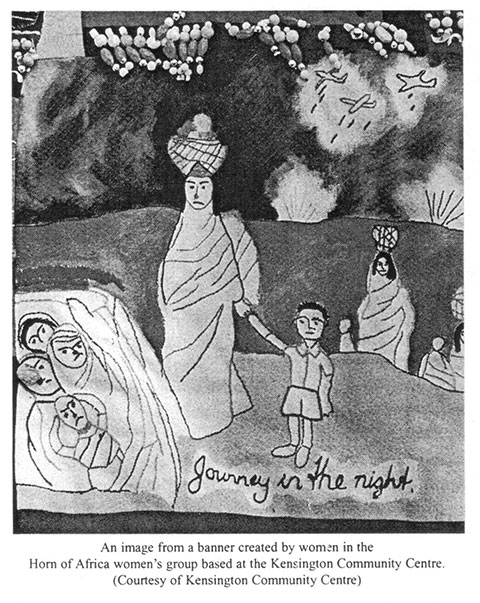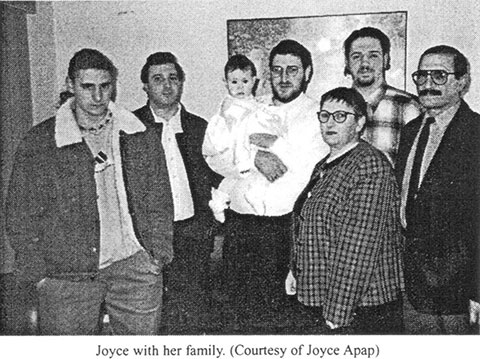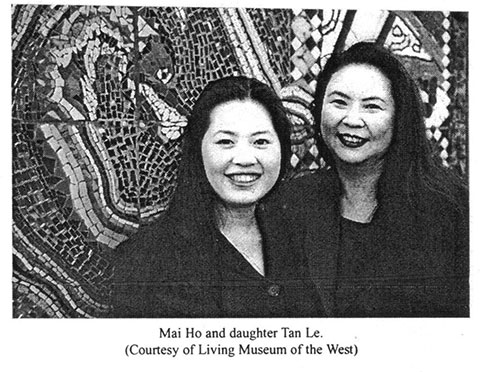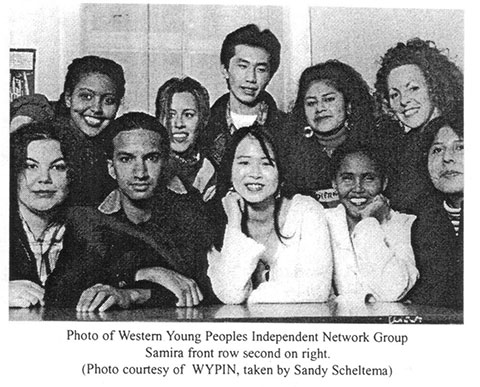Panel 8: A New Country – Many women contributing to society in the west have come from somewhere else
Amna Maleken
Amna trained as a social worker at Cairo University in 1971. She immigrated to Australia in 1989 and renewed contact with a group of older women from the Horn of Africa who had emigrated earlier. Most of these women came from refugee camps where they had stayed for up to 17 years in Sudan and Egypt. They are now living around the Kensington area. Amna has supported these women in their adjustment to life in Australia. Her work is very important as she knew many of these women before they immigrated and they trust, respect her and are able to communicate with her in their native languages. In Australia, they feel very stressed, house bound and isolated. Amna truly appreciates the needs of these women as during her life in Eritrea she was heavily involved in the political struggles. Most of these women are unable to return to Eritrea as they were associated with the political party that did not gain power.
1975 was a very critical situation in Eritrea. People were so tense and frightened
that they were scared of their shadows. Families encouraged loved one’s to flee for their life.

Joyce Apap
Joyce came to Australia from Malta in 1966 and settled in St.Albans. She had four sons and was involved in kindergarten and school councils. Her involvement in the group ‘Women of the West’ was a significant step in redirecting her life. This group was set up in 1984 as a community based social action/lobby group made up of women living or working in the western suburbs. Its aims were to support women in taking new directions in their lives and encourage them to feel confident about themselves. Women in this group encouraged Joyce to return to study, an option she did not know was available to her. Joyce gained knowledge and a new perspective about women’s equality and raised questions about old traditions. Her involvement with other women enhanced her awareness of women’s role in society. She is dedicated to assisting women especially women from a non-English speaking background. Joyce now works as a community development worker.
I became aware of the western suburbs situation and felt that migrants were seen as stupid. I became angry as we aren’t stupid and all contribute something to the community. When I was voted as the only woman from the western suburbs to the Victorian Women’s Council in 1993, some people said 1 was just a token. 1 didn’t think of myself that way.
I enjoyed school and often said I wanted to be a nun. I love and admire strong women like the nuns in the orphanage. Whenever we played games, I took on the role of the mother. This made me feel close to my mother; even though we were separated.
(Living Generously, Jocelynne Scutt)

Mai Ho
In 1982 Mai Ho fled Vietnam on a tugboat with her two daughters. After five days at sea, they were rescued by an oil tanker. Before arriving in Australia, she and her family spent two months in Malaysian refugee camps. Mai found work picking beans and sorting onions and carrots at a market. After taking English lessons, she became quality control inspector at General Motors-Holden. Mai was determined to get a better job and eventually had the chance to study business administration. She now runs a cosmetics and skin-care business and is soon to open her own magazine. Mai decided to run for Council as she felt that Vietnamese people should have more representation in Government and she eventually joined the local Labour Party. In 1993 Mai became the first Vietnamese woman to be elected on to the Footscray council and then became the first mayor in the newly amalgamated municipality of Maribyrnong in 1997 and the first female Vietnamese mayor in Australia.
My grandmother was a very strong woman, she influenced me a lot, she was very gentle but strong in the sense of willing something. She encouraged me to keep trying, if you fail, try again and again.
I have a vision of community harmony where everyone lives together in harmony. We have the same struggles, we can use that experience, the wisdom that comes from that, to become better.
(Gandolfo manuscript)

Samira Farag
Samira came to Australia when she was 16 with her younger brother and sister. She had little English and felt very isolated. Her parents came 2 years later. She initially lived in the Maribyrnong Hostel and has stayed living in the west. While she was there, the Western Young Peoples Independent Network group came to visit youth living in the hostel and she was interested in keeping in contact with them. She felt that they helped people to feel settled in their new place. Samira has worked with WYPIN for 6 years and has been their Chairperson and Community Development Youth Worker. The youth group is comprised of refugees, newly arrived migrants and people from a non-English speaking background. They all work together on different projects related to multicultural issues and support one another. The group is now 10 years old and is a model for other youth groups state-wide. Samira has also been involved in the Young Ambassadors Program with Maribyrnong Council. She feels the issues for young people are the feeling of being caught between two cultures, feeling homesick for your home country and for family left behind.
Because there is no war, people think things will be easier. The war has affected all of our lives.
I felt lost.
‘What is the difference between a refugee and a migrant? Why do people migrate? What really happens to refugees? What is it really like from a new country? This performance confronts the barriers that young people experience, such as racism, isolation and intolerance. For some, it is a voice, an affirmation of the experiences from their family, friends, community and themselves.’
(Quote from Time and Space performance from WYPIN)

Tan Le
Tan Le migrated with part of her family from Vietnam as a child 15 years ago. She settled in the western suburbs. She completed a commerce-law degree and was made Young Australian of the Year in 1998. She has worked as a volunteer with Vietnamese youth in the west assisting them to find employment and training. As a migrant, she now ponders on her place and identity. She grew up with an awareness of resettlement difficulties. She feels that society places too much emphasis on power, money and influence rather than caring for others.
When we left Saigon, it was night and we had to bribe the officials. I was four but I knew instinctively that it was a life and death thing. I remember crouching in the water, being put in the boat.
When people come as refugees or immigrants, theirs is not just a physical migration, it is an immigration of the hopes and aspirations. It is an immigration of hard work and dedication, it is an immigration of the heart.

